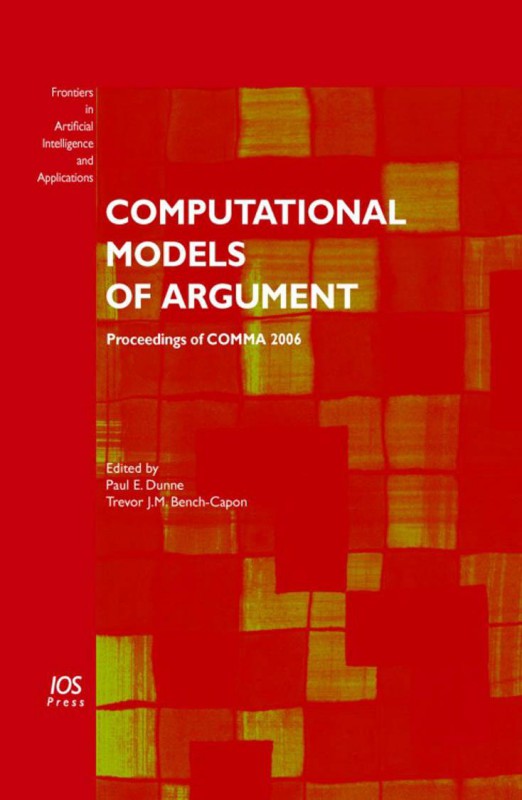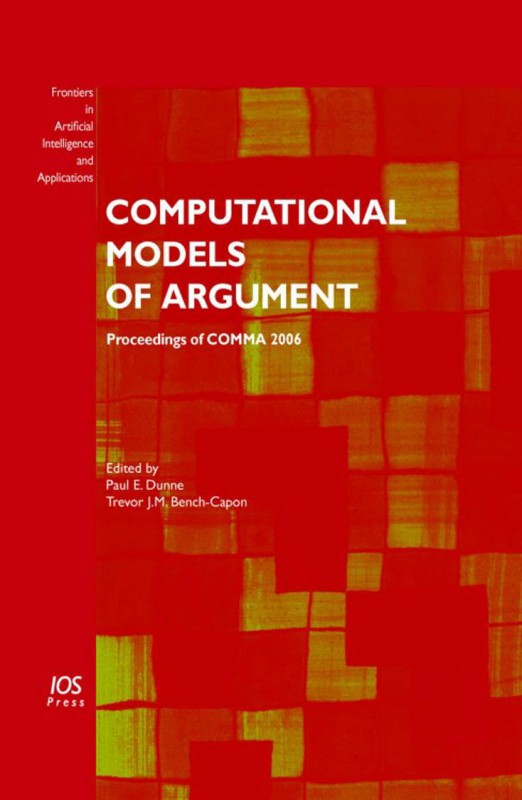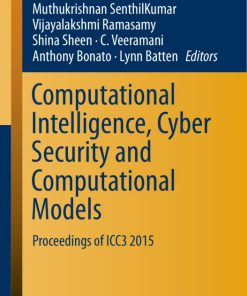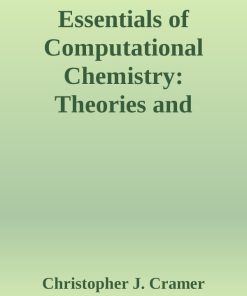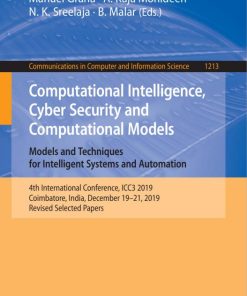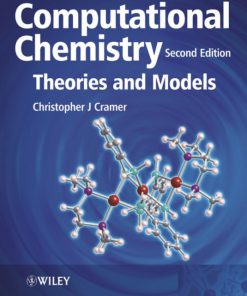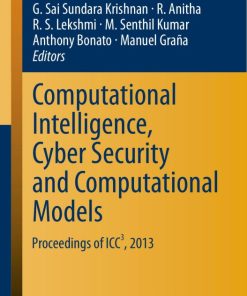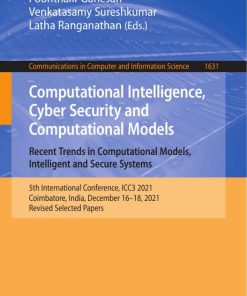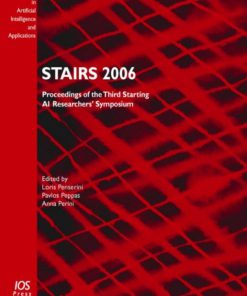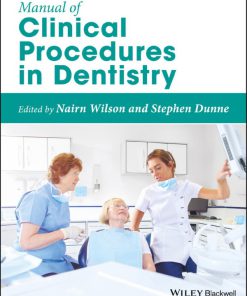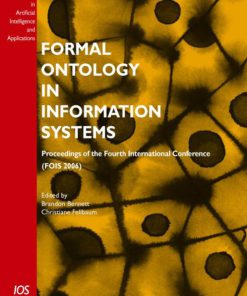Computational Models of Argument Proceedings of COMMA 2006 1st Edition by Paul Dunne, Trevor Bench Capon ISBN 1586036521 9781586036522
$50.00 Original price was: $50.00.$25.00Current price is: $25.00.
Authors:Dunne, Paul E.; Bench-Capon, T. J. M. , Author sort:Dunne, Paul E.; Bench-Capon, T. J. M. , Published:Published:Sep 2006
Computational Models of Argument: Proceedings of COMMA 2006 1st Edition by Paul E. Dunne, Trevor J.M. Bench-Capon – Ebook PDF Instant Download/Delivery. 1586036521, 978-1586036522
Full download Computational Models of Argument: Proceedings of COMMA 2006 1st Edition after payment
Product details:
ISBN 10: 1586036521
ISBN 13: 978-1586036522
Author: Paul E. Dunne, Trevor J.M. Bench-Capon
Computational Models of Argument: Proceedings of COMMA 2006 1st Edition: Argumentation has evolved from its original study primarily by philosophers to emerge in the last ten years as an important sub-discipline of Artificial Intelligence. Among the significant contributions resulting from this have been approaches to modeling and analysis of defeasible reasoning, formal bases for negotiation and dialogue processes in multiagent systems, and the use of argumentation theory in AI applications whose nature is not best described through traditional logics, e.g. legal reasoning, evaluation of conflicting beliefs, etc. The process of interpreting and exploiting classical treatments of Argumentation Theory in effective computational terms has led to a rich interchange of ideas among researchers from disciplines such as Philosophy, Linguistics, AI and Economics. While work over recent years has done much to consolidate diverse contributions to the field, many new concerns have been identified and form the basis of current research. The papers in this volume, presented as part of the 1st International Conference on Computational Model of Arguments (COMMA) in September 2006, give a valuable overview of on-going research issues and concerns within this field.
IOS Press is an international science, technical and medical publisher of high-quality books for academics, scientists, and professionals in all fields.
Computational Models of Argument: Proceedings of COMMA 2006 1st Edition Table of contents:
-
Part 1: Representing Arguments
- Argument Representation on the Semantic Web
- Building Agents that Plan and Argue in a Social Context
- Argue tuProlog: A Lightweight Argumentation Engine for Agent Applications
- An Application of Formal Argumentation: Fusing Bayes Nets in MAS
-
Part 2: Applications
- Value-Based Argumentation for Democratic Decision Support
- Argument-Based Machine Learning in a Medical Domain
- CBR and Argument Schemes for Collaborative Decision Making
-
Part 3: Computational Properties of Argumentation
- Complexity Properties of Restricted Abstract Argument Systems
- Computing Preferred Extensions for Argumentation Systems with Sets of Attacking Arguments
- An Algorithm to Compute Minimally Grounded and Admissible Defence Sets in Argument Systems
- Semi-Stable Semantics
-
Part 4: Argumentation Frameworks and Schemes
- Reasoning in Argumentation Frameworks Using Quantified Boolean Formulas
- A Dialectic Procedure for Sceptical, Assumption-Based Argumentation
- Evaluation and Comparison Criteria for Extension-Based Argumentation Semantics
-
Part 5: Argumentation Tools
- Translating Wigmore Diagrams
- First Steps Towards the Automatic Construction of Argument-Diagrams from Real Discussions
People also search for Computational Models of Argument: Proceedings of COMMA 2006 1st Edition:
types of computational models
computational models examples
what is a computational model
computational models of cognition
computational models and methods

